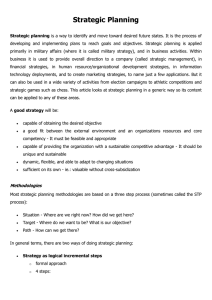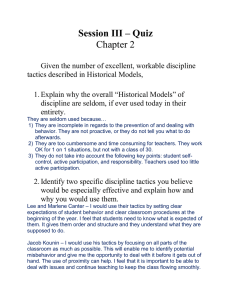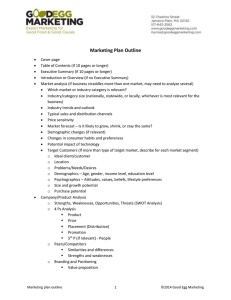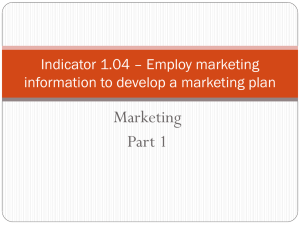Analyzing the Negotiations of the Other Negotiator
advertisement
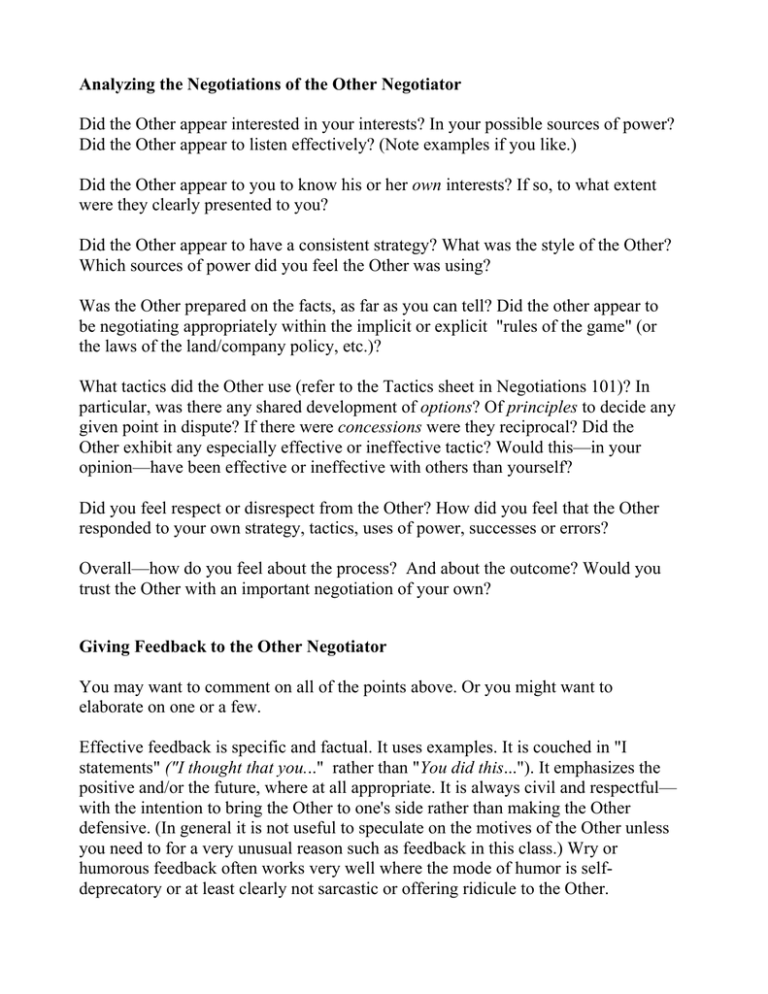
Analyzing the Negotiations of the Other Negotiator Did the Other appear interested in your interests? In your possible sources of power? Did the Other appear to listen effectively? (Note examples if you like.) Did the Other appear to you to know his or her own interests? If so, to what extent were they clearly presented to you? Did the Other appear to have a consistent strategy? What was the style of the Other? Which sources of power did you feel the Other was using? Was the Other prepared on the facts, as far as you can tell? Did the other appear to be negotiating appropriately within the implicit or explicit "rules of the game" (or the laws of the land/company policy, etc.)? What tactics did the Other use (refer to the Tactics sheet in Negotiations 101)? In particular, was there any shared development of options? Of principles to decide any given point in dispute? If there were concessions were they reciprocal? Did the Other exhibit any especially effective or ineffective tactic? Would this—in your opinion—have been effective or ineffective with others than yourself? Did you feel respect or disrespect from the Other? How did you feel that the Other responded to your own strategy, tactics, uses of power, successes or errors? Overall—how do you feel about the process? And about the outcome? Would you trust the Other with an important negotiation of your own? Giving Feedback to the Other Negotiator You may want to comment on all of the points above. Or you might want to elaborate on one or a few. Effective feedback is specific and factual. It uses examples. It is couched in "I statements" ("I thought that you..." rather than "You did this..."). It emphasizes the positive and/or the future, where at all appropriate. It is always civil and respectful— with the intention to bring the Other to one's side rather than making the Other defensive. (In general it is not useful to speculate on the motives of the Other unless you need to for a very unusual reason such as feedback in this class.) Wry or humorous feedback often works very well where the mode of humor is selfdeprecatory or at least clearly not sarcastic or offering ridicule to the Other. Rowe—15.667—2 As you use this worksheet, you will obviously be thinking about your own negotiating. Please in specific think about which tactics and sources of power work best for you? To which are you personally the most vulnerable? Observing the Negotiations of Others as a Third Party Did A or B's opening statements reveal any true interests? Did A or B share relevant information? What sources of power did each party appear to have? What sources of power did each party appear to use? Did either party use commitment tactics? Did either party try to exploit weaknesses of the other? What bargaining style did the parties exhibit: accommodative, competitive, compromising, avoiding, collaborative, or mixed? What strategy was each party using? (distributive, integrative, mixed motive) What tactics of either party were especially noteworthy? Did either party seek to understand and respect the interests of the other? Did either party help to develop new options? Did either party participate in the creation of a face-saving solution? Did either party emphasize the relationship as much as the settlement? Subjectively speaking, do you trust either A or B?


